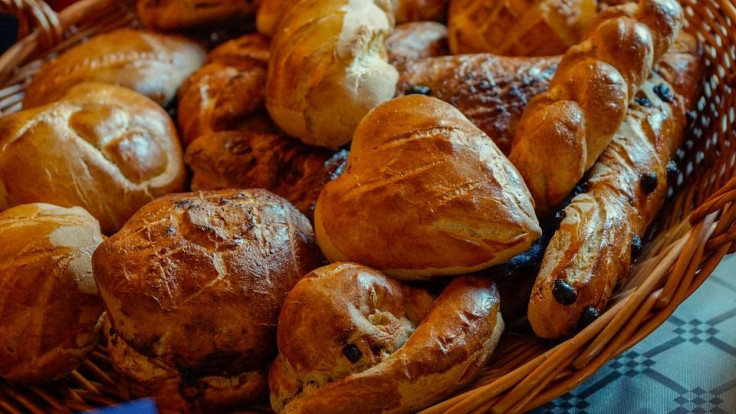Celiac Disease Awareness: How To Manage The Disorder, Gluten-Free Diet Tips, And More

Since there’s no cure for celiac disease, it’s vital for people with the disorder to manage their symptoms the best they can. This means paying close attention to their diet and avoiding gluten. While it might sound easy to avoid common sources of gluten, like breads and pastas, it often appears in unexpected foods such as salad dressings, soy sauce, and other condiments.
In honor of Celiac Disease Awareness Month, Medical Daily spoke to registered dietitian nutritionist, nutrition advocate, and celiac disease expert Rachel Begun. She is living with celiac disease herself, so she is very aware of the challenges faced by people with the disease.
Read: Gluten-Free Food Options May Not Be As Healthy As You Think, Study Warns
Despite 1 in 133 Americans, or 1 percent of the population, having the disease, a majority of them are either undiagnosed or misdiagnosed. Begun aims to bring more awareness to the disease and help patients navigate their food options. Since following a gluten-free diet is the only approved treatment, it's no surprise that upon meeting with clients diagnosed with celiac, she is often asked many questions about gluten: Is a gluten-free diet hard? How do I know if a food contains gluten? What are the long-term effects of not eating gluten?
All of these questions are valid — if a person with celiac eats gluten, their intestines can become damaged, causing many unpleasant and painful side effects. To avoid this, Begun shared a few tips for following a gluten-free diet. Although some people without the disease choose to avoid gluten, many studies have shown there's no benefit, and it may make it more difficult to get nutrients like fiber and folate. "It just goes to show that as is true for any dietary pattern, it's about the overall choices you make," Begun told Medical Daily.
Tips For A Gluten-Free Diet (If You Have Celiac)
1. Eat gluten-free healthfully. Although avoiding gluten is the biggest priority, it’s very important to continue to eat a nutrient-rich diet. This will not only make you feel better, but also help your gut heal faster.
2. Eat (mostly) whole, natural foods. This includes fruits, vegetables, gluten-free whole grains, beans, nuts, seeds, dairy and lean cuts of meat, poultry and fish.
3. Limit gluten-free desserts. As a recent study showed, gluten-free options may not be as healthy as you think. Begun recommends limiting cookies, cakes, and other products that are packaged as gluten-free. These products are often packed with refined grains, empty starches, and added sugars. Instead, she opts for baked goods made with nut or bean flours.
Following these tips will help you manage your symptoms; however, they're not the end all, be all to the disease.
“It’s commonly believed that once you go gluten-free everything is fine and so most people diagnosed never see a doctor again,” Begun told Medical Daily. “In fact, it is easy to be exposed to gluten, some experience unresolved symptoms despite their efforts to eat gluten-free, and still yet others may experience associated conditions.” Therefore, she stresses the importance of continuing to see your doctor.
Tips On How To Manage Your Celiac
1. Regular doctors visits. Continue to see your doctor so they can track and monitor your progress.
2. Meet with an registered dietitan. An RD can help you understand how to read food labels and manage your diet. One of the best options is to look for an RD that specializes in food allergies or gluten-related disorders, such as celiac.
3. Join a support group. Whether in person, or online, support groups can provide information, referrals, and resources to help guide you.
The genetic autoimmune disease can lead to a number of other disorders, such as infertility and neurological disorders, according to Beyond Celiac. For additional support and information about celiac, check out Beyond Celiac's website, which provides resources like this at-home Celiac Disease Symptoms Checklist.
See also: Celiac Disease Screening: Don't Get Tested For Gluten Reaction Unless You Have Symptoms, Panel Says



























